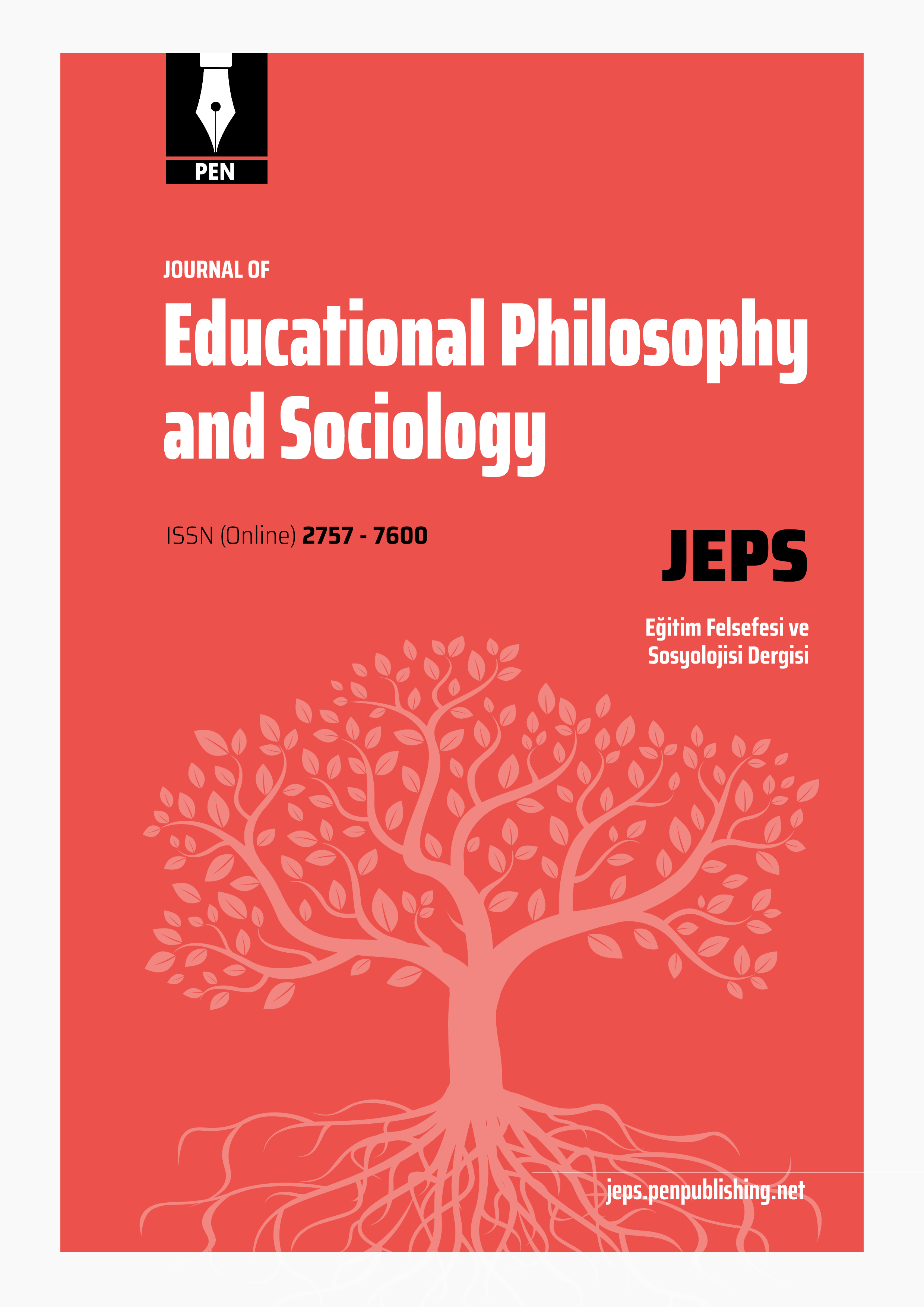- Abd, R., B., Munandar, S. A., Fitriani, A., & Karlina, Y. (2022). Understanding education, educational science and elements of education. Al Urwatul Wutsqa: Islamic Education Studies, 2(1), 1–8. https://journal.unismuh.ac.id/index.php/alurwatul/article/view/7757 [Google Scholar]
- Ahmed, D. A. K., Henari, T. F., & Maklef, A. A. (2021). Investigating students’ development of 21 century and lifelong skills during Covid-19 Crisis education. TESOL International Journal, 16, 103–126. Scopus. [Google Scholar]
- Baro’ah, S. (2020). Free learning policy as a strategy to improve education quality". Tawadhu Journal, 4(1). [Google Scholar]
- Chan, F., Lia, Zubaedah, & Siti. (2019). Implementation of discipline character education in students at SD Negeri 187/1 Lotus. Journal of Pendas Mahakam, 4(2), 137–145. https://doi.org/10.24903/pm.v4i2.405 [Google Scholar] [Crossref]
- Dicky, A. B. & etal. (2021). Character education in a pandemic. Proceedings of the 2021 PBSI-IV National Seminar. Indonesian Language and Literature Education. [Google Scholar]
- Fitriyani, P. (2018). Character education for generation Z. Proceedings of the 7th National Conference. Association of Muhammadiyah Aisyiyah Higher Education Postgraduate Programs (APPPTMA. [Google Scholar]
- Hamzah, M. R., Mujiwati, Y., Khamdi, I. M., Usman, M. I., & Abidin, M. Z. (2022). Proyek profil Pelajar Pancasila sebagai Penguatan Pendidikan Karakter pada Peserta Didik. JURNAL JENDELA PENDIDIKAN, 2(04), 553–559. https://doi.org/10.57008/jjp.v2i04.309 [Google Scholar] [Crossref]
- Hayati, M. (2020). The Contribution of 21st Century learning skills in the development of multiple intelligences-based PAI learning. Dissertation Bachelor of education. http://repository.uin-suska.ac.id/id/eprint/30248 [Google Scholar]
- Huda, S., Tadjuddin, N., Sholihuddin, A., Kato, H., & Cengiz, K. (2022). Character and Adab education in Indonesia, Turkey, and Japan: A Comparative study. Islamic Guidance and Counseling Journal, 6(1), 1–17. https://doi.org/10.25217/igcj.v6i1.2973 [Google Scholar] [Crossref]
- Hwang, G.-J., Li, K.-C., & Lai, C.-L. (2020). Trends and strategies for conducting effective STEM research and applications: A mobile and ubiquitous learning perspective. International Journal of Mobile Learning and Organisation, 14(2), 161–183. Scopus. https://doi.org/10.1504/IJMLO.2020.106166 [Google Scholar] [Crossref]
- Irinna, A. N., & Hudaidah. (2021). Development of Indonesian education during the Covid-19 Pandemic. Educational Journal of Educational Sciences, 3(2), 456–462. https://doi.org/10.31004/edukatif.v3i2.324 [Google Scholar] [Crossref]
- Jesslyn, J., Anugerah, A. S., Azhar, Indah, Mikayla, & Toni. (2021). Learning loss due to distance learning during the Covid-19 Pandemic in Indonesia. SEMINAR NASIONAL STATISTIKA X. Seminar NasionalStatistik X, Bandung. https://semnas.statistics.unpad.ac.id/wp-content/uploads/erf_uploads/2021/11/Learning-Loss-Akibat-Pembelajaran-Jarak-Jauh-Selama-Pandemi-Covid-19-di-Indonesia.pdf [Google Scholar]
- J.S.I.T.Indonesia. (2017). Quality standards of distinctiveness of integrated Islamic schools. JSIT Indonesia Quality Team. [Google Scholar]
- Karaca-Atik, A., Meeuwisse, M., Gorgievski, M., & Smeets, G. (2023). Uncovering important 21st-century skills for sustainable career development of social sciences graduates: A systematic review. Educational Research Review, 39, 100528. https://doi.org/10.1016/j.edurev.2023.100528 [Google Scholar] [Crossref]
- Lickona, T. (1992). Educating for character, how our school can teach respect and responsibility. Bantam Books. [Google Scholar]
- Maisyaroh, M., Untari, S., Chusniyah, T., Adha, M. A., Prestiadi, D., & Ariyanti, N. S. (2023). Strengthening character education planning based on Pancasila value in the international class program. International Journal of Evaluation and Research in Education (IJERE), 12(1), 149. https://doi.org/10.11591/ijere.v12i1.24161 [Google Scholar] [Crossref]
- Man, D., Zhu, C., Chau, M. H., & Maruthai, E. (2022). Contextualizing assessment feedback in translation education: A corpus-assisted ecological approach. Frontiers in Psychology, 13, 1057018. https://doi.org/10.3389/fpsyg.2022.1057018 [Google Scholar] [Crossref]
- Miles, M. B., & Huberman, A. M. (1992). Qualitative data analysis: A sourcebook of new method. In Translation of Tjetjep Rohendi Rohidi. Qualitative Data Analysis: A Sourcebook on New Methods. University of Indonesia Publisher (UI-PRESS. [Google Scholar]
- Ministry of Education and Culture of Research and Technology. (2021). Project development guide for strengthening the profile of Pancasila students. Ministry of Education and Culture of Research and Technology. http://ditpsd.kemdikbud.go.id/hal/profil-pelajar-pancasila, [Google Scholar]
- Moghadam, Z. B., Narafshan, M. H., & Tajadini, M. (2023). The effect of implementing a critical thinking intervention program on English language learners’ critical thinking, reading comprehension, and classroom climate. Asian-Pacific Journal of Second and Foreign Language Education, 8(1), 15. https://doi.org/10.1186/s40862-023-00188-3 [Google Scholar] [Crossref]
- Moleong. (2010). Qualitative research methods. Remaja Rosdakarya. [Google Scholar]
- Muhammadon, D. H. (2022). Radical solutions to overcome the education crisis during the pandemic. Journal of Basic Education and Social Humanities, 3, 503–512. https://bajangjournal.com/index.php/JPDSH/article/view/1176 [Google Scholar]
- Mustikaningrum, G., Linda, Sri, Edi, & Wahyu. (2020). Implementation of integrated character education curriculum and learning methods during the Covid-19 Pandemic. AULADUNA: Journal of Islamic Basic Education.Vol, 7(2), 154–164. https://doi.org/10.24252/10.24252/auladuna.v7i2a5.2020 [Google Scholar] [Crossref]
- Pramono, H., Nurafiati, S., Rahayu, T., & Sugiharto, S. (2023). The influence of physical education teacher performance on elementary students’ character building. Jurnal Cakrawala Pendidikan, 42(1). https://doi.org/10.21831/cp.v42i1.53359 [Google Scholar] [Crossref]
- Prihadi, E. (2018). 4C skill development through the poster comment method on PAI and ethics subjects. JPI Rabbani Journal, 2. (1, 465. [Google Scholar]
- Prihatmojo, A. (2019). Implementation of character education in the 21st century. National Seminar on Education. Proceedings of Semnasfip. National Seminar on Education. https://jurnal.umj.ac.id/index.php/SEMNASFIP/article/view/5125 [Google Scholar]
- Rijali, A. (2018). Qualitative data analysis. Journal of Alhadharah, 17(33), 81–95. [Google Scholar]
- Sa’adah, W. S. (2022). Strategies for Pancasila and civic education teachers in implementing character education during the Covid-19 pandemic (Descriptive study of Pancasila and civic education teachers of SMP Negeri 12 Bandung). Indonesian University of Education. [Google Scholar]
- Septikasari, R., & Frasandy, R. N. (2018). Keterampilan 4C Abad 21 Dalam Pembelajaran Pendidikan Dasar. Jurnal Tarbiyah Al-Awlad, 8(2), 112–122. https://doi.org/10.15548/alawlad.v8i2.1597 [Google Scholar] [Crossref]
- Stephanou, G., & Mpiontini, M.-H. (2017). Metacognitive knowledge and metacognitive regulation in self-regulatory learning style, and in its effects on performance expectation and subsequent performance across diverse school subjects. Psychology, 08(12), 1941–1975. https://doi.org/10.4236/psych.2017.812125 [Google Scholar] [Crossref]
- Suprayitno, A., & Wahyudi, W. (2020). Character education in the millennial era.. Deepublish. [Google Scholar]
- Umar, A. (2022). Character education that (Feels) lost during the pandemic. Republika.Go.Id Website. https://www.republika.co.id/berita/r6q3g6483/pendidikan-karakter-yang-terasa-hilang-di-masa-pandemi [Google Scholar]
- Yunus, A., & Gunarsa, A. (2016). Learning system design in the context of the 2013 curriculum (4th ed.). PT Refika Aditama. [Google Scholar]
- Yusup, M. (2017). Religious exclusivism of the integrated Islamic School Network (JSIT) Yogyakarta. Journal of Religion, 13(1), 75–96. https://doi.org/10.14421/rejusta.2017.1301-05 [Google Scholar] [Crossref]
- Zubaedi. (2011). Character education design: Its conception and application in educational institutions. Kencana. [Google Scholar]
|
